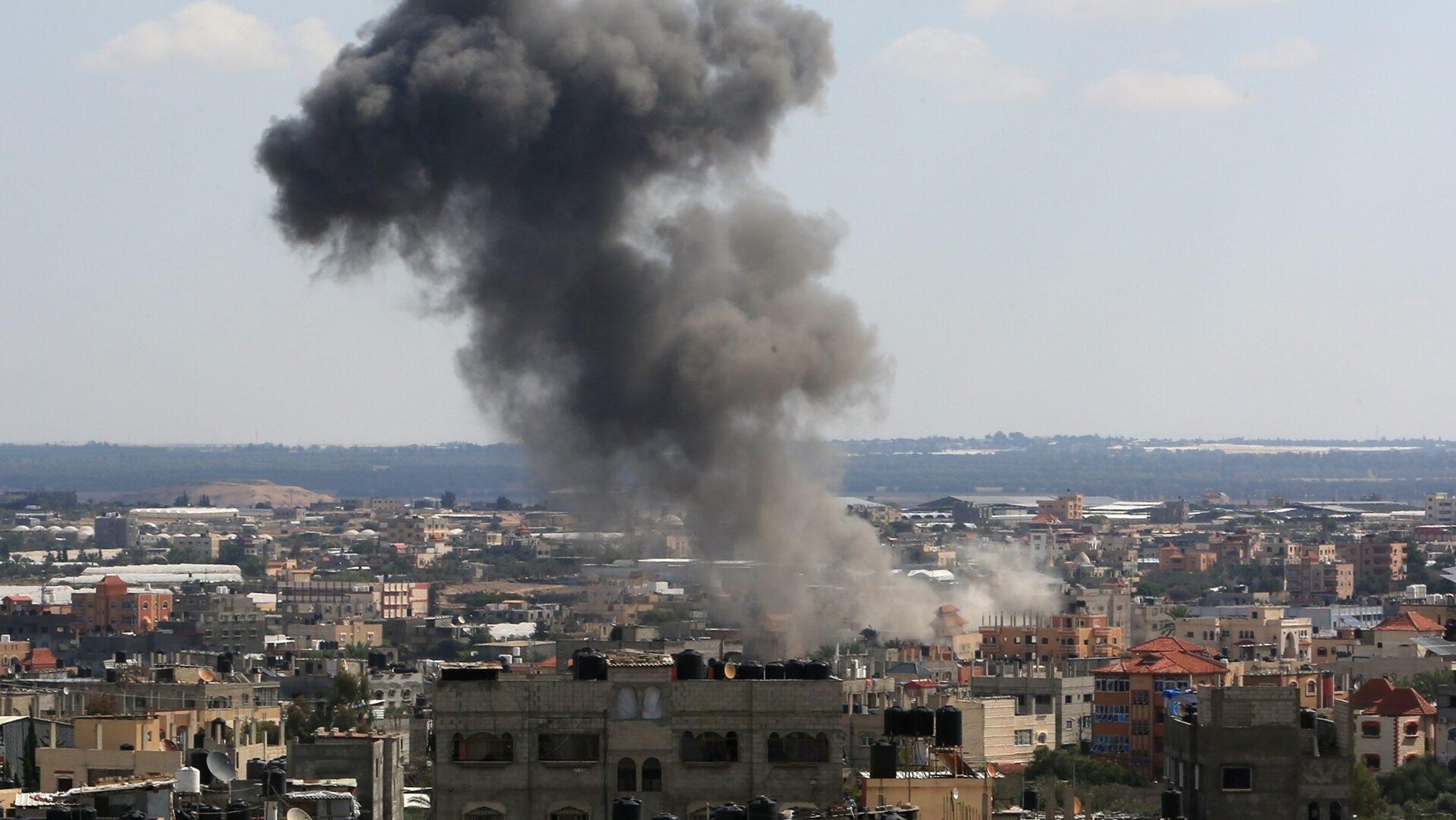Gazans Reeling During Intense Israeli Airstrikes
Estimates of 1 million Palestinians displaced and a looming ground invasion suggest that the ultimate humanitarian cost may be much higher
After Israel’s blockade on Gaza, relief convoys from Egypt are being allowed to move toward the enclave. Aid officials reported that convoys that had been waiting in the Egyptian city of Arish began moving today toward the Rafah border crossing.
Israel has been imposing a strict siege on Gaza, preventing the entrance of food, fuel, electricity, and water, following Hamas’ Oct. 7 attack on Israel that has led to more than 1,400 deaths, mostly of civilians. Around 200 Israelis were taken hostage in the attack, including women, children, and the elderly.
“We have arrived at the terminal and are now waiting for the next step,” said Heba Rashed, who runs the aid group Mersal. Other aid officials said that hundreds of trucks were already on the road for the 25-mile journey to Rafah.
The death toll in Gaza as a result of Israel airstrikes is mounting. The Hamas-run health ministry in Gaza reports that at least 2,800 Gazans have been killed and another 9,700 injured, with those numbers expected to rise.
“Gaza is facing a humanitarian catastrophe,” ministry of health spokesperson Ashraf al-Qidra told The Media Line. “Hospitals are overcrowded with injured people. We are running out of fuel for generators.”
He warned that medical aid is desperately needed and that the health sector in the impoverished enclave is on “the verge of collapse.”
Tensions in Gaza are high, and Israeli strikes from air, sea, and land are intensifying. The looming possibility of a full-blown ground invasion risks more loss of civilian lives. Gazans are bracing for the worst.
It was bombing nonstop all night long. We couldn’t sleep, and the kids were crying all the time.
“It was bombing nonstop all night long,” Jabalia resident Mohammad Swairki, 53, told The Media Line. “We couldn’t sleep, and the kids were crying all the time.”
Swairki, a father of six children, said that the intensity of Israel’s response forced him to move his family south.
“We didn’t have water or electricity, and the situation was unbearable,” Swairki said.
Depriving civilians of goods essential for survival is banned under international law, the UN human rights chief has said.
The World Health Organization said on Monday that water, fuel and electricity would run out within 24 hours, saying that Israel’s blockade on Gaza had intensified in the days following Hamas’ deadly attack. Israel resumed water delivery to Gaza yesterday afternoon in order to allow for water collection again.
Najah Jaber, a mother of six children from the Rimal neighborhood in Gaza City, told The Media Line that her house was leveled by Israeli airstrikes on Saturday and that her husband is missing. “He went out last Tuesday and never returned. I don’t know what happened to him. That night the bombing was heavy,” she said.
UNRWA (United Nations Relief and Works Agency) said on Sunday that 1 million Palestinians had already been displaced in the first week of the conflict.


